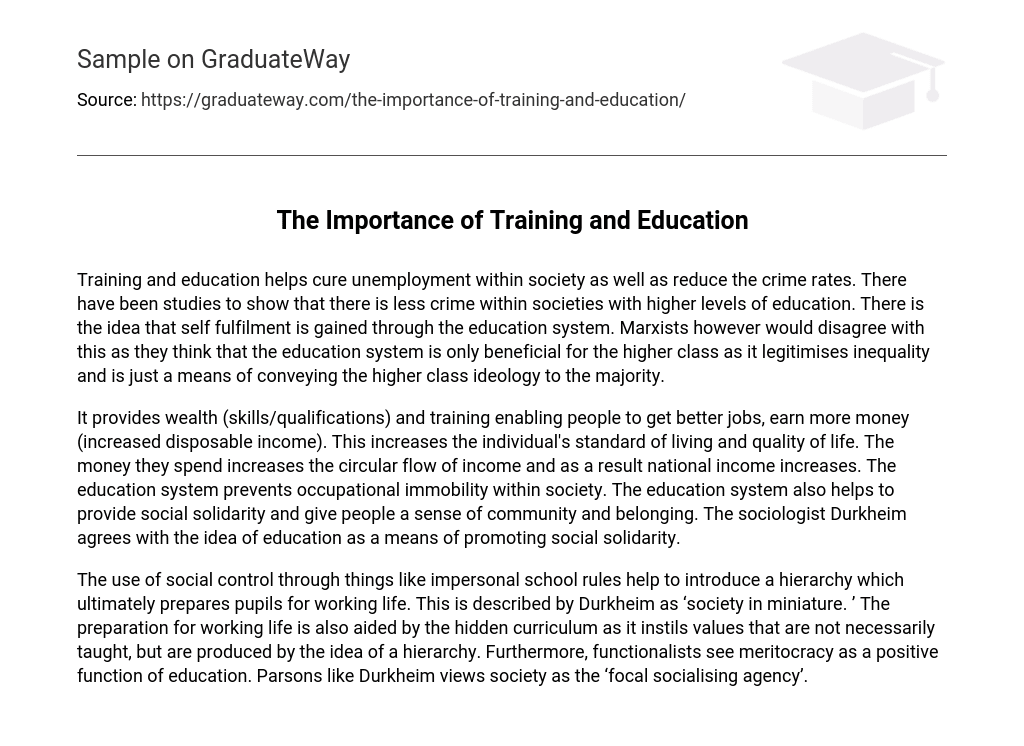Training and education helps cure unemployment within society as well as reduce the crime rates. There have been studies to show that there is less crime within societies with higher levels of education. There is the idea that self fulfilment is gained through the education system. Marxists however would disagree with this as they think that the education system is only beneficial for the higher class as it legitimises inequality and is just a means of conveying the higher class ideology to the majority.
It provides wealth (skills/qualifications) and training enabling people to get better jobs, earn more money (increased disposable income). This increases the individual’s standard of living and quality of life. The money they spend increases the circular flow of income and as a result national income increases. The education system prevents occupational immobility within society. The education system also helps to provide social solidarity and give people a sense of community and belonging. The sociologist Durkheim agrees with the idea of education as a means of promoting social solidarity.
The use of social control through things like impersonal school rules help to introduce a hierarchy which ultimately prepares pupils for working life. This is described by Durkheim as ‘society in miniature. ’ The preparation for working life is also aided by the hidden curriculum as it instils values that are not necessarily taught, but are produced by the idea of a hierarchy. Furthermore, functionalists see meritocracy as a positive function of education. Parsons like Durkheim views society as the ‘focal socialising agency’.





